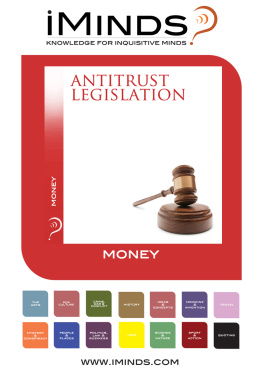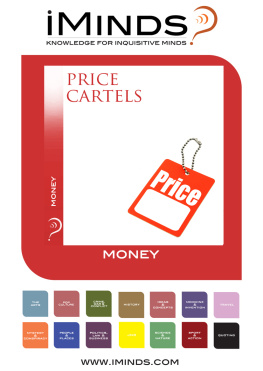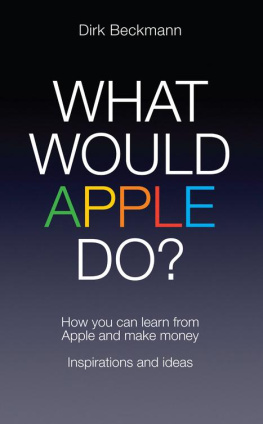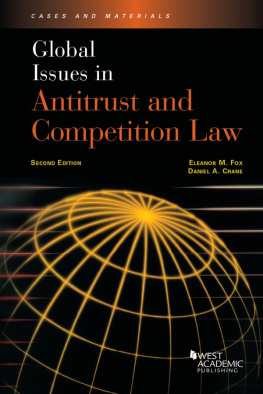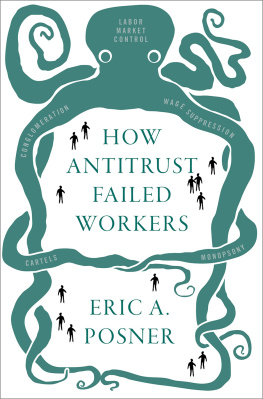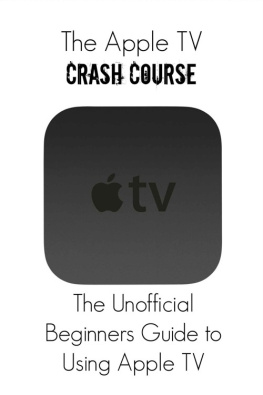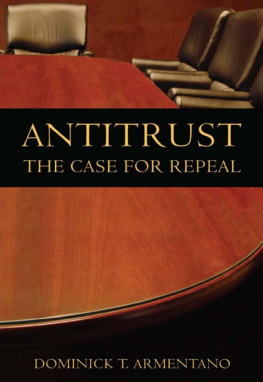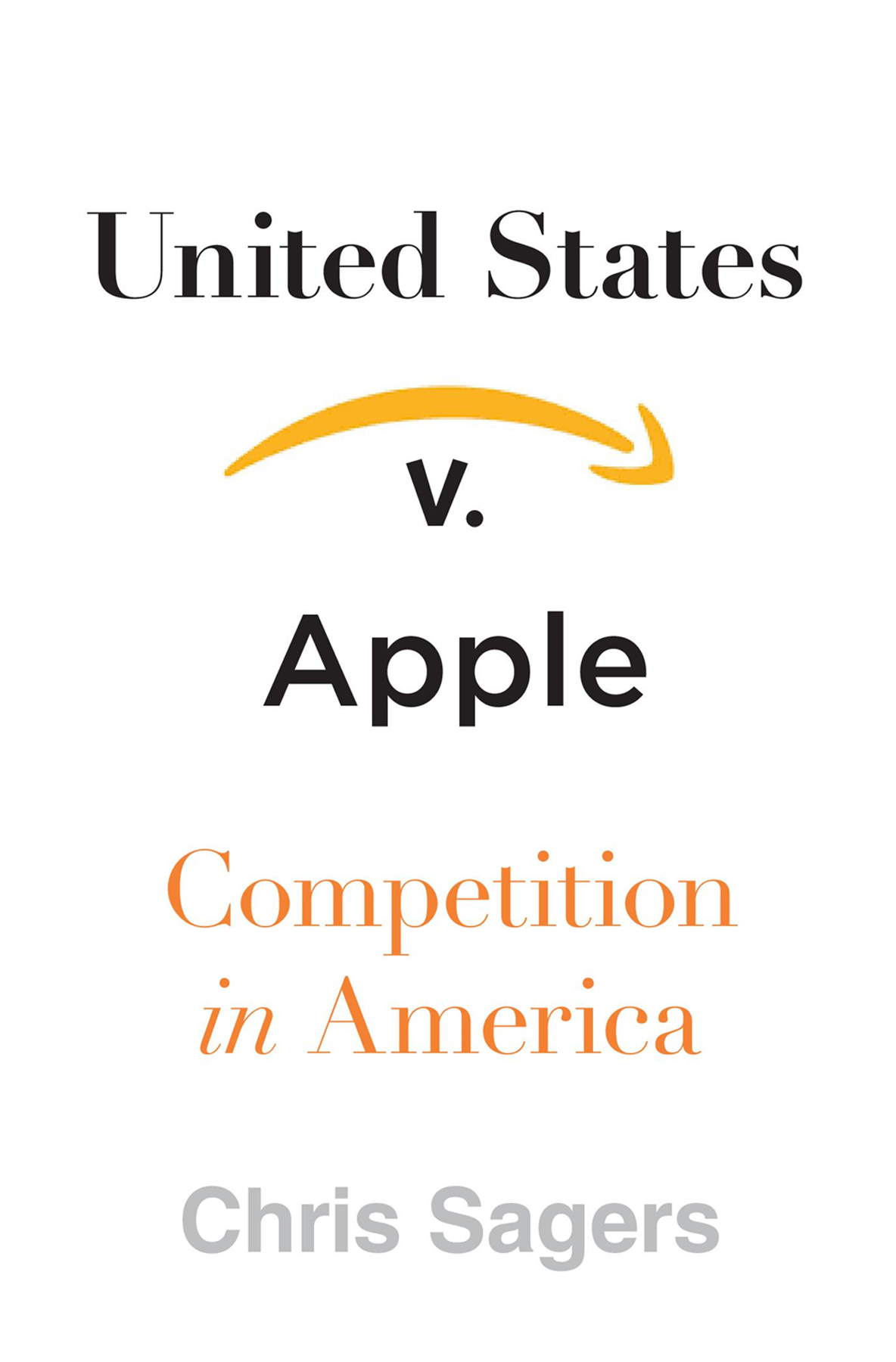Contents
Guide
Pagebreaks of the print version
United States v. Apple
COMPETITION IN AMERICA
CHRIS SAGERS


Cambridge, Massachusetts London, England
2019
Copyright 2019 by the President and Fellows of Harvard College
All rights reserved
Sagers Jacket Credit
Jacket design: Lisa Roberts
9780674972216 (alk. paper)
9780674243293 (EPUB)
9780674243309 (MOBI)
9780674243286 (PDF)
The Library of Congress has cataloged the printed edition as follows:
Names: Sagers, Christopher L., 1970 author.
Title: United States v. Apple : competition in America / Chris Sagers.
Description: Cambridge, Massachusetts : Harvard University Press, 2019. | Includes bibliographical references and index.
Identifiers: LCCN 2019010761
Subjects: LCSH: Price fixingUnited States. | Restraint of tradeUnited States. | Antitrust lawUnited States. | Publishers and publishingUnited States.
Classification: LCC KF1627 .S242 2019 | DDC 343.7307 / 25dc23
LC record available at https://lccn.loc.gov/2019010761
Dedication
I realized on a trip home in July of 2016 that this book is for my dad. Books mattered so much to him that as a boy, he once told me, he lost some of his sight reading by kerosene lamp. It was for him in part as one more attempt to confront his lifelong pain at having had to quit his schooling at age twelve. That was a thing that happened in Iowa childhoods in those days, so that kids could start working. Its for how hard it always was to convince him that that circumstance said no more about him than outward signs say about the large number of abject morons afoot whove managed to secure elite degrees. But it is also for him because, beginning with the power it had when he first told me as a young man that he liked my writing, I keep realizing in how many different, small ways he made me who I am. In that respect he is like the clouds in Iowa. I never gave them much thought until Id lived away for many years, despite the great and quiet size of the skies in flat lands.
Amazon was using e-book discounting to destroy bookselling. The irony bites hard. This would be tragic for all of us who value books, and the culture they support.
Scott Turow, President, Authors Guild, March 9, 2012
[Amazons eBook pricing policy was] impervious, of course, to the overall welfare of the industries in which it [was] operating. The book publishing industry was and is one of delicate balances and cross-supports. It has a cultural role in a civilised society, and a sublime one. New, potentially important and perhaps great authors need to be found. They need to be nurtured.
Tim Waterstone, Founder, Waterstones Booksellers, April 6, 2012
I say to you that the VCR is to the American film producer as the Boston Strangler is to the woman home alone.
Jack Valenti, President, Motion Picture Association of America, April 12, 1982
[If player pianos are permitted to exist, then] a condition is almost sure to arise where all incentive to further creative work is lacking and compositions will no longer flow from [composers] pens.
John Philip Sousa, 1906
Contents
THE DANIEL PATRICK MOYNIHAN United States Courthouse is a mostly unadorned granite tower in lower Manhattan. It is short as big-city buildings go, but it seems taller and more imposing among the low-slung judiciary buildings of Foley Square. An important federal trial unfolded within one of its ornate courtrooms during the very hot July of 2013, which brought to a head several long-simmering tensions, impacting three separate industries, and by some accounts, reshaping the future of the written word. But from outward appearances, United States v. Apple should have been mundane as antitrust cases go. The Department of Justice charged the Apple computer corporation and several publishing houses with fixing the prices of electronic books, or eBooks, in violation of federal antitrust laws. It was plainly enough a big case in some respects, because Apple was one of the worlds largest and most admired companies, and because the figure of the companys legendary founder, recently deceased, loomed over it. Before this death, Steve Jobs had made several damaging statements that had gotten much attention in the press and would later prove important to the governments case. The publisher defendants, too, added their drama. Each of them was a subsidiary of one of the massive conglomerates that dominate the worlds media, and by the time of the trial their conspiracy affected the vast majority of general-interest publishing in English. Their executives piled up a trove of exceptionally damaging, embarrassing evidence through clandestine meetings in extremely swank restaurants, frenzied, secret communications, and telling efforts to cover their own tracks.
Apple, strictly speaking, was just a price-fixing case, with straightforward facts and legal issues. Of the eight or nine hundred antitrust cases filed each year, most of them are price-fixing cases, because price-fixing is taken as an important and serious violation. It is also the simplest antitrust claim to prove. Price-fixing is subject to a special rule in antitrust called per se liability, and it is the plaintiffs surest route to victory. These cases usually have simple facts and straightforward legal issues, and most of them look more or less like Apple. Even the harshest critics of the aggressive bookseller Amazonagainst which the Apple defendants claimed they needed their conspiracy to surviveadmitted that the conduct challenged in the case was in blatant disregard of the law.
And yet, in so many ways, United States v. Apple would prove unusual, and much more philosophically significant than its circumstances suggested. It was not because the defendants were big companies or had celebrity CEOs. It was not because the case involved new-economy technology, or because it involved a seemingly special productbooksor even because it involved a substantial, perhaps industry-shaping technological transition. Those were all significant matters in their own way, but antitrust cases often involve sectoral change and the potential for lost jobs and investments. What was remarkable about the caseremarkable enough to justify writing this bookwas the publics reaction.
On Wednesday, July 10, after the close of a three-week trial, a well-regarded federal judge named Denise Cote issued her final judgment in the matter. It was surprising that the case had even made it that farthat it went through a full trial and called for Judge Cotes final judgment. Almost all antitrust cases are dismissed or settle, even more often than other federal lawsuits. In that regard, the material nature of the Moynihan Courthouse and the many federal buildings like itlarge, capacious, often lavishly appointed facilitiessays something about our legal system and especially our faltering, little-used system of antitrust rules. These extravagant buildings contain hundreds of courtrooms richly appointed at taxpayers expense, but they mostly sit empty, waiting for people to use them. In the Apple case, all five of Apples codefendants settled before trial. Exactly why Apple stuck it out so long will probably always remain between the company and its lawyers, but there were plenty of reasons to expect it to settle as quickly as the other defendants did.


